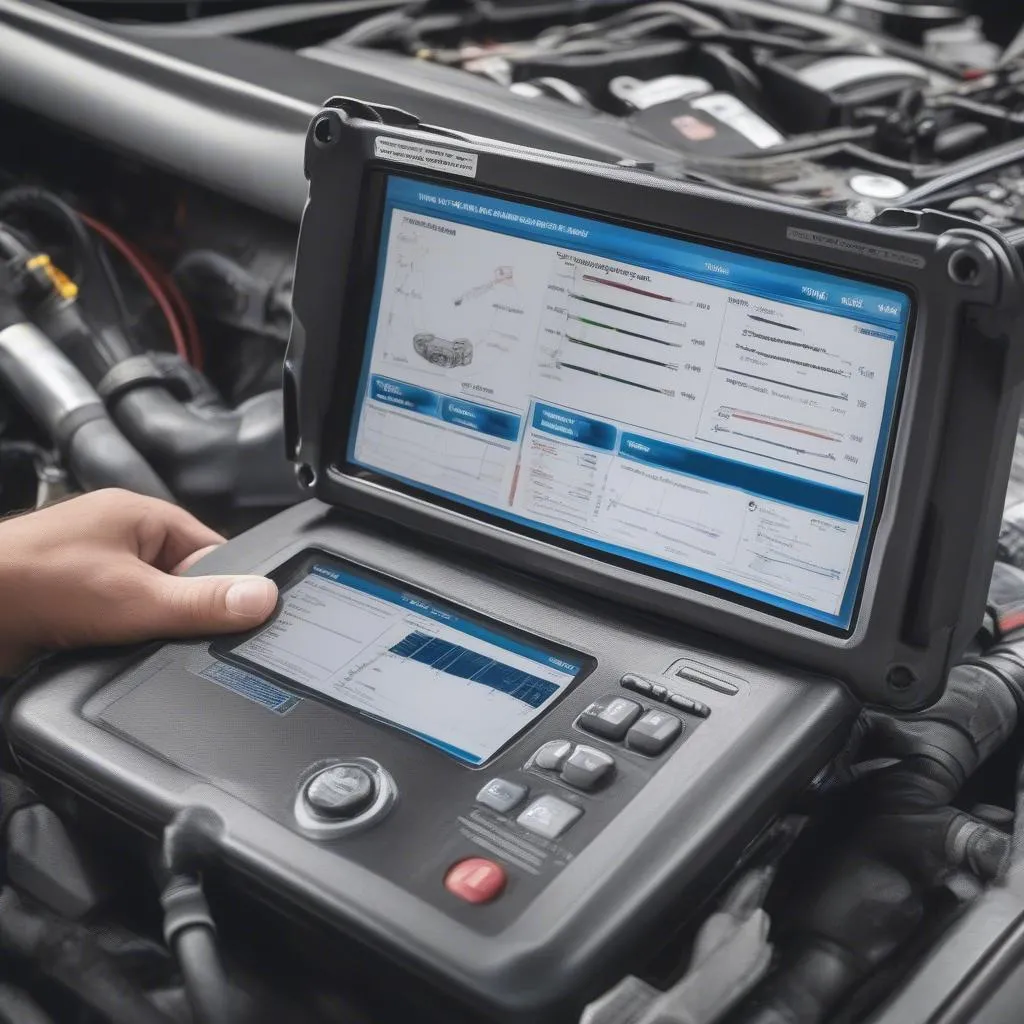Imagine this: You’re driving your Nissan down a scenic California highway, the sun shining, music playing, when suddenly a thought hits you – “Does my Nissan have a tracking device?” It’s a question that has likely crossed the minds of many Nissan owners. Today, we’re going to delve into the world of Nissan cars and tracking devices, answering this question and exploring related concerns.
Understanding the Question:
The question “Do Nissan Cars Have Tracking Devices?” has multiple layers of meaning. From a technical standpoint, it asks about the presence of hardware and software designed for vehicle tracking. But, it also touches on the broader concerns of privacy, security, and potentially even the possibility of unwanted surveillance.
From a Mechanic’s Perspective:
As an automotive expert, I can tell you that most modern vehicles, including Nissans, are equipped with various sensors and systems that collect data. This data can include location, speed, engine performance, and more. While this information is primarily used for diagnostics and safety features, it can also be used for tracking purposes.
The Technological Angle:
It’s important to distinguish between tracking devices installed by the manufacturer and aftermarket tracking devices. Nissan, like many other car manufacturers, incorporates some form of tracking technology for diagnostic and security purposes. This could involve a basic GPS system for roadside assistance, an anti-theft system, or even a more advanced system used by the manufacturer for fleet management.
The Answer:
So, do Nissan cars have tracking devices? The short answer is – it depends. Some Nissans might have factory-installed tracking devices, while others might have aftermarket systems installed by owners.
Factory-Installed Devices:
Nissan utilizes a variety of systems that could be considered “tracking devices” by some. These systems are primarily designed for safety, security, and diagnostic purposes.
- NissanConnect: This platform, offered in various Nissan models, includes features like remote vehicle start, location tracking, and emergency assistance. While its core functionality is for convenience and safety, it can also be used to track the vehicle’s location.
- Anti-theft Systems: Nissan vehicles often come equipped with anti-theft systems that utilize GPS tracking to locate and recover a stolen vehicle.
Aftermarket Devices:
Many Nissan owners choose to install aftermarket tracking devices for added security or to track their vehicles for personal reasons. These devices are typically installed by professional installers and are not directly integrated with the vehicle’s systems.
Exploring the Concerns:
While it’s understandable to have privacy concerns regarding tracking devices, it’s essential to remember the primary purpose of these systems.
- Safety: Tracking systems allow for quick assistance in case of accidents or emergencies.
- Security: They help to deter theft and facilitate recovery of stolen vehicles.
- Fleet Management: For commercial fleets, tracking devices provide valuable data for optimizing routes, fuel consumption, and overall fleet efficiency.
FAQs:
Here are some common questions asked by Nissan owners:
- “Can I disable the factory-installed tracking device?” The answer depends on the specific system and model year. In some cases, you might be able to disable certain features, but completely removing the tracking functionality might require professional intervention.
- “Does Nissan sell my location data to third parties?” It is crucial to review your NissanConnect terms and conditions and privacy policy to understand how Nissan handles data collection and sharing practices.
- “How can I find out if my Nissan has a tracking device?” You can check your vehicle’s owner’s manual or contact your Nissan dealership for information about specific tracking systems included in your vehicle.
A Case Study:
Let’s say you’re driving your Nissan Altima down a familiar street in Denver, Colorado. Suddenly, you hear a loud thump and realize you’ve hit a pothole. You pull over, your car’s dashboard flashing a warning light. This is when the built-in tracking system kicks in, silently notifying roadside assistance. Within minutes, a tow truck arrives, thanks to the precise location data sent from your car. This scenario highlights how tracking devices can be vital for unexpected events, ensuring your safety and timely assistance.
Taking Action:
If you’re concerned about your privacy or want to understand the capabilities of the tracking system in your Nissan, contact a reputable mechanic or dealer. They can provide information on the specific systems installed in your vehicle and offer advice on how to manage your privacy preferences.
Further Exploration:
- Learn more about OBD-II ports in older Nissan models
- Discover the benefits of OBD-II apps for your Nissan
Conclusion:
In conclusion, while it’s true that some Nissan cars have tracking devices, the primary purpose of these systems is to enhance safety, security, and overall vehicle performance. By understanding how these devices operate and what information they collect, you can make informed decisions about your privacy and vehicle management.
We hope this guide has helped clarify your understanding of tracking devices in Nissan vehicles. Remember, if you have any specific questions or concerns about your Nissan’s tracking system, please feel free to reach out to our team of experts at Tech Car USA! We’re here to help you stay informed and connected to the world of automotive technology.
![]() Nissan Tracking Device
Nissan Tracking Device
 Nissan Roadside Assistance
Nissan Roadside Assistance
 Nissan Diagnostics
Nissan Diagnostics
